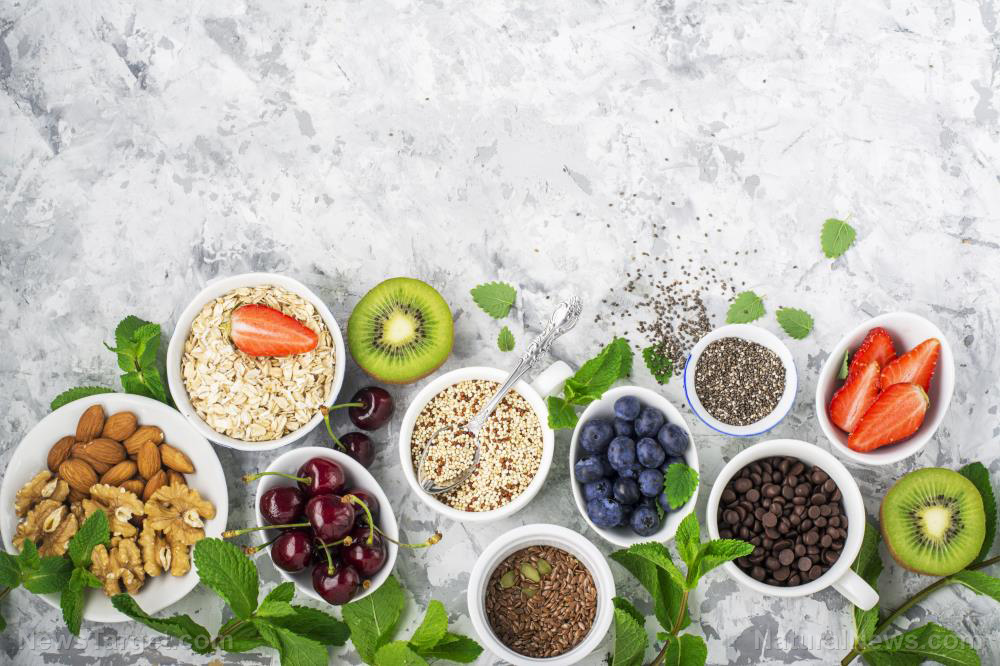Apple juice, milk or water? Study suggests an interesting link between blood sugar response and cognitive performance
08/04/2020 / By Virgilio Marin

A study published in the journal Current Developments in Nutrition found that blood sugar response plays a role in cognitive performance after researchers gave apple juice, milk and water to participants.
Milk, in particular, displayed an interesting effect, suggesting that drinking it at a particular time may potentially yield better brain function.
“If findings replicate, they will inform optimal timing for milk consumption to best facilitate cognition,” wrote the researchers.
Effect of apple juice, milk and water on cognition
Previous studies suggested that the body’s ability to regulate glucose specifies how much carbohydrates a person should consume to experience cognitive benefits.
In the current study, the researchers looked at glycemic response and its effect on cognition after ingesting a beverage. Glycemic response refers to the extent to which the body’s blood sugar rise after a particular carbohydrate source enters the body.
For the study, researchers used apple juice, milk and water. Water served as the control variable, while the two other drinks are the carbohydrate source.
A total of 44 adults participated in the study. After fasting overnight, they took cognitive tests in the morning and had their blood drawn. Afterward, they drank a certain beverage and once again repeated the cognitive tests after 30, 90 and 150 minutes elapsed since drinking. This is repeated in two more sessions but with a different drink. This way, a participant gets to drink all three beverages once.
Contrary to what they expected, the researchers did not see any elevated benefits in the brain by drinking apple juice. Furthermore, they did not observe significant differences between the three drinks.
A notable finding, however, is that the participants who had the largest glycemic response to juice performed significantly better at the cognitive tests 30 to 60 minutes after ingesting milk. This effect reversed once the participants’ glucose levels dropped back to before they ingested milk. The researchers suggest that drinking milk at a specified time can optimize benefits on the brain.
Dairy linked to better brain function
The current study is not alone in saying milk can provide benefits to cognitive health.
A study found that higher dairy consumption is associated with higher brain concentrations of the antioxidant glutathione, which is used by the brain to fight oxidative stress. The study also found that those who consumed three servings of milk and other dairy products displayed about 30 percent higher antioxidant levels than adults who had less than half a serving per day.
When asked how dairy consumption can lead to increased brain glutathione, the researchers posit that it may have to do with the amino acid cysteine, which is abundant in dairy. Cysteine plays an important role in the production of glutathione. Moreover, dairy nutrients calcium and riboflavin are also possible factors, as they are implicated in maintaining glutathione concentration based on studies.
Given these findings, consuming enough dairy is important for brain health. National surveys show that only 23 percent of older adults in the United States meet dietary recommendations for dairy. By drinking milk, for one, you can better meet the nutrients your body needs. (Related: Research indicates that organic milk has more health benefits than conventional milk.)
“Drinking milk could be one of the healthy choices people can make,” said In-Young Choi from the University of Kansas Medical Center. Choi is part of the glutathione study.
Take note, however, that some people are lactose intolerant or have a milk allergy. Lactose intolerance refers to when the body does not produce enough enzymes called lactase, which makes it difficult to digest milk. Milk allergy, on the other hand, happens when milk causes an abnormal immune response in the body, causing allergies.
In this case, it is better to choose other foods that can provide the benefits of milk without an adverse response.
Learn more about foods that can boost brain function at BrainHealthBoost.com.
Sources include:
Submit a correction >>
Tagged Under:
This article may contain statements that reflect the opinion of the author
RECENT NEWS & ARTICLES
COPYRIGHT © 2017 SUPER FOODS NEWS





















